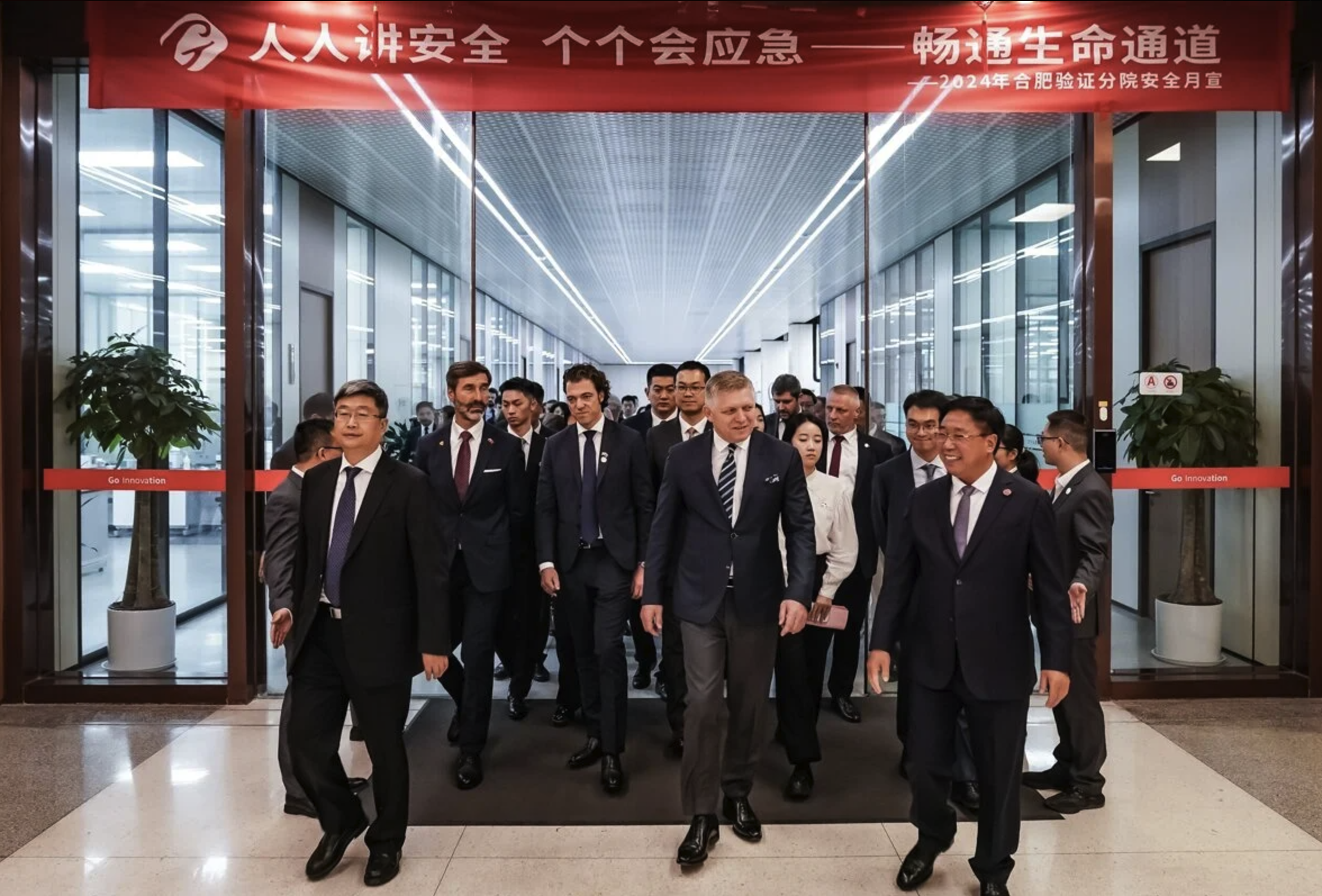Amid secrecy surrounding Slovak Prime Minister Robert Fico’s recent visit to China, Slovak China expert and Director of the CEIAS: Central European Institute of Asian Studies Matej Šimalčík has raised concerns over transparency and the implications of a new agreement between Slovakia’s state press agency TASR and China Media Group, an arm of the Chinese Communist Party’s Propaganda Department.
In a recent LinkedIn post, China expert Matej Šimalčík raised serious concerns over the Slovak government’s lack of transparency surrounding Prime Minister Robert Fico’s trip to China. Šimalčík noted that no details were shared in advance about the ministers or business representatives joining the PM, and journalists were excluded, preventing independent coverage. Instead, the public has had to rely on official press releases and video statements, leaving critical gaps in public knowledge about the trip’s objectives, agreements, and long-term implications.
A Secretive Approach to Diplomacy
Šimalčík criticised the secrecy of the visit, especially the absence of publicly accessible Slovak-language versions of the signed agreements, including a declaration on strategic partnership with China, which has only been released in Chinese. This limited access to information is viewed as troubling, particularly when compared to other diplomatic practices in democratic settings where transparency is prioritised.
TASR and China Media Group Agreement
One of the key developments emerging from the visit was a content-sharing agreement signed between Slovakia’s national press agency, TASR, and China Media Group (CMG), an agency tightly controlled by the Chinese Communist Party’s Propaganda Department. This partnership, signed by Shen Haixiong—who holds both the role of CMG president and a high-ranking position in the CCP’s propaganda unit—has raised alarm among analysts like Šimalčík. The agreement could be interpreted as a potential conduit for Chinese state narratives in Slovak media, marking a shift in the media landscape that could compromise journalistic independence.
Cultural Cooperation and Policy Shifts
Another agreement made during the trip involves a memorandum of understanding between the Slovak Ministry of Culture and China’s Ministry of Culture and Tourism. Šimalčík observed that Culture Minister Martina Šimkovičová has recently pursued policies that reflect aspects of “cultural normalisation” within Slovakia. Some speculate that this new MoU could further align Slovak cultural policies with those of China, promoting stricter control over the media and cultural narratives—a direction that may diverge from the values of openness typically upheld by EU member states.
Implications for Slovakia’s Democratic Values
Šimalčík’s observations underscore a broader concern that aligning with Chinese state media and adopting more controlled cultural policies could risk Slovakia’s reputation as a democratic nation committed to media independence and transparency. These developments may affect Slovakia’s standing within the European Union and its image on the international stage, where democratic accountability and openness remain core values.
Source: Matej Šimalčík | LinkedIn







